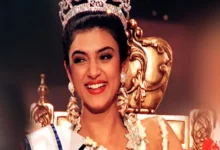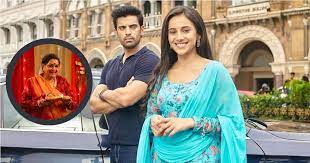fatal flaws and gaps that are visible
I will remember this specific sight for a very long time. A father sobbing in the middle of the road and slowly waving his hand as if to take away the horrific event that took his daughter’s life. The distraught face that takes up most of the shot contrasts sharply with the seemingly harmless pothole that was soaked in rain the day before and took a life.

Though I can still clearly recall a similar agonized expression from Nisha Pahuja’s documentary “To Kill a Tiger,” nothing could have prepared me for Manoj Patil’s (Rajpal Yadav) heartbreaking sobbing as he finally comes to terms with the loss of his daughter.
The inspirational real tale of Manoj Patil, who fills potholes of all kinds to save others from suffering the same fate as his Gudiya after losing his daughter in a freak car accident, is the basis for the film “Kaam Chalu Hai.” He uses his assignment to grieve her passing.
The 82-minute film opens with a newspaper clipping montage that informs us of the number of lives lost in our nation annually as a result of those deadly potholes. The movie, which will be pushed by the Indian Motion Picture Producers’ Association (IMPPA) in the esteemed Cannes Film Festival in 2024, addresses this social problem that hasn’t been addressed on screen. As a topic, it is fresh, timely, and enlightening.
The lifestyles of the Patils, a middle-class family residing in Sangli, Maharashtra, are panned by director Palaash Muchhal. Manoj, played by Rajpal Yadav, is a manager at a nearby restaurant, and Gudiya, played by Kumari Nagraj, is his little daughter. She excels academically and has promise as a cricket player.
Manoj fosters the hope that one day his daughter would represent his nation in athletics.
Muchhal wants to depict a joyful family in the first part of the work. He does this by capturing moments of joyous family vacations, singing, and the amusing banter between Manoj and his wife Radha (Giaa Manek). He overdoes the joyful family part in an attempt to offer us individuals we can relate to. Their enjoyment seems false, and the interactions feel forced.
The movie doesn’t really become serious until the second part. As its message takes form, Rajpal Yadav, the somber persona, reveals a whole other side to him. After cremating his daughter, he searches everywhere for her because he cannot believe that she is no longer with him. His rage quickly replaces the denial phase, and we watch him rushing from the police station to government buildings in an attempt to apprehend the offender. Holding onto his daughter’s ashes the whole time. His body language and facial gestures are compelling.
Thus, we dismiss it as an exaggeration of sorrow even when he does something foolish like scale the wall of the wealthy road contractor’s home and enter the bedroom with a knife.
Giaa Manek also gives a powerful performance as a lady torn between her husband’s insane actions and her own sadness. The story maintains its melancholic tone thanks to the subtle photography of Parvez Pathan and the musical accompaniment of Javed Ali and Papon.
Despite all of its advantages, “Kaam Chalu Hai” is still a work in progress. The narrative’s tone is superficial while dealing with a serious subject. Muchhal gives those responsible for the hundreds of lives lost on the roads due to deadly potholes just a passing look. Nothing is more symbolic than even Manoj Patil’s objective. At the very end, when the real Patil and the reel Patil are standing side by side with shovels in hand, it’s the one moment when we sense that there is a real person underneath that grieving Patil’s character.
The movie stops suddenly then, allowing us to process our own emotions and ideas.
If I feel sorry for Patil and his wife after their ordeal, then I also feel sorry for Rajpal Yadav, who missed out on a serious, sensitive part in Bollywood despite having to wait almost a lifetime for it due to a poor screenplay!







